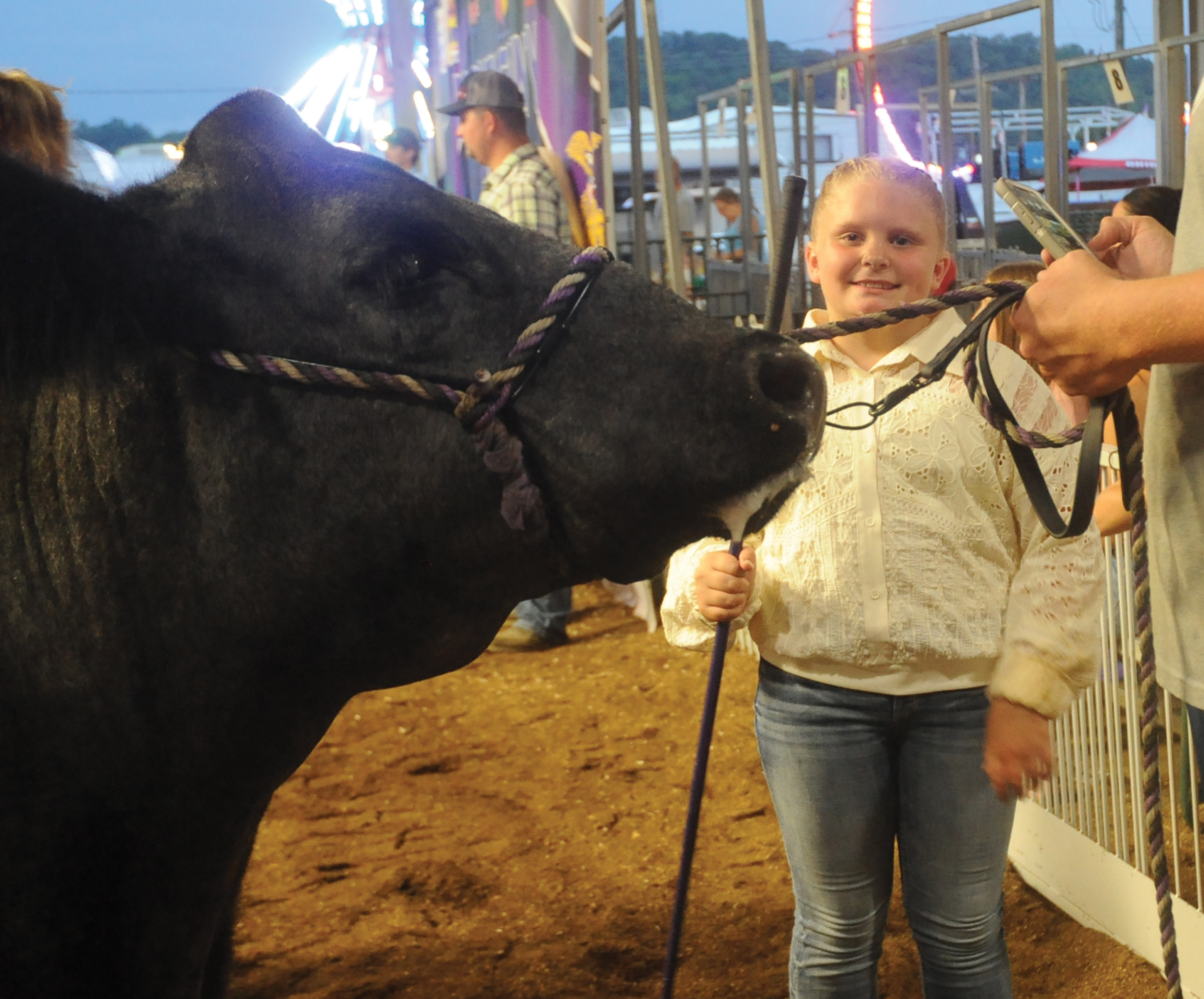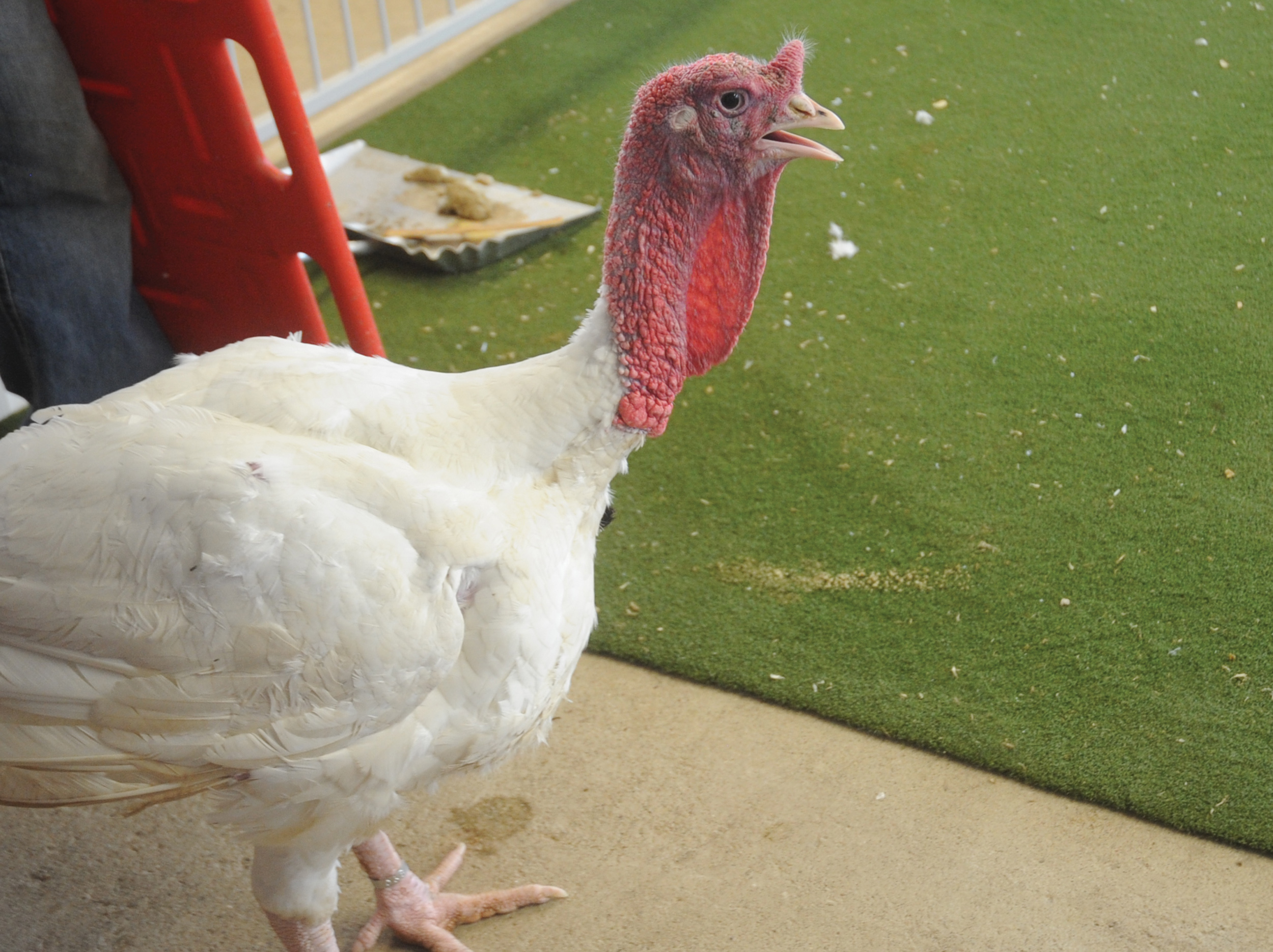Guinea pigs make good starter pets
Published 5:11 am Monday, April 4, 2022
We recently took in 20 some guinea pigs.
They were a pair that got out of hand and the owner was overwhelmed.
Helping in hoarding/overpopulation situations is something we do not get paid for and we will never break even on. But the furry critters needed help and it is hard to see guinea pigs and not smile. I love guinea pigs! This is also not the first time we have helped out in a hoarding situation.
At different times, we have taken in several cats, dozens of dogs and not quite this many guinea pigs before.
We have two residents G-pigs. We adopted them after Bob and Larry died.
Guinea pigs are not impulse pets, they can live up to 9 years (average 5 to 7). Keeping a single cavy (guinea pig) or a single sex means that there will not be an explosion of guinea pigs.
Bob and Larry do not fight unless there is parsley involved, but if your guinea pigs do fight neutering may help them get along.
I wanted them because they make good pets.
As Garrett says, they are cute, cuddly and easy to take care of. I like them because they are always happy!
Guinea pigs are very social and are typically a herd animal. That means they do much better in groups and live longer (on average) if kept together. And unlike most pets, an additional G-pig is a minimal additional cost.
Guinea pigs so easy, they are even reasonably good pets for small children.
The rarely bite. They are reasonably intelligent.
They will train themselves to alarm when the refrigerator opens. Every one I know will wheet-wheet-wheet to a refrigerator door sound, lest you forget to give them a treat while you are in there. Guinea pigs are sturdy and do not kick out and break their backs like rabbits do.
The third good trait is that they are diurnal like us. Regular hamsters are nocturnal.
That means when the kids get home from school, it is like if you were awakened at two every morning. (Hint: think of waking a hibernating bear from a nap.)
That is why people often get bit by their hamsters. By the way, Siberian or Russian dwarf hamsters are nappers and not truly nocturnal, so they mind less when you wake them up.
Guinea pigs are normally awake in the daytime so they are happy to interact. I have been bitten by dogs, cats, hamsters, birds, iguanas and bats, but never a guinea pig. They don’t keep you up at night on their wheel either.
Guinea pigs don’t take up a lot of space.
They don’t jump or crawl to escape.
If there are no predators in the house, they can be kept in a container like a washtub or tote without a top. While they are rodents in the class of gnawing mammals (mice, hamsters, squirrels, chipmunks, beavers), they don’t usually gnaw to escape.
(Nor do they have the rat tail that bothers a lot of folks.) They do well in the cold, but do not tolerate heat well. Housing should be about three feet in diameter.
A round washtub works especially well.
Guinea pigs like to run (or stampede) and if they can run in a circle they will keep running. You can easily build a cage for them.
A larger cage is easier to keep clean, provides more exercise and smells better.
Aquariums do not have enough ventilation and can build up ammonia, mold and bacterial growth.
They will need a hide box for security, protection and to sleep.
Guinea pigs and humans must have vitamin C in their diet. Most mammals can make their own, but humans and guinea pigs cannot. Guinea pig pellets are supplemented with vitamin C, but it quickly oxidizes and is not available in the diet.
Dark leafy greens (kale, parsley, cabbage, spinach, lambsquarter and dandelion) are a good source of Vitamin C, but make sure any weeds are correctly identified and are pesticide and fertilizer free. Some Guinea pigs will drink Tang® (Like the astronauts drink.) Fruits can be used also, but are high in sugar which is not good in higher quantities.
Likewise, spinach, broccoli and cauliflower can have too much calcium which causes oxalate crystals.
Hay is a great food for guinea pigs. Get the kind that comes in a bale. The grass hays are better than the alfalfa or high protein hay. Used in the cage, they will play and hide and bed in it and also eat it. They must have food in their guts at all time and hay is the best option.
Also, when your teen wants a new pet, a guinea pig is a good option.
Unlike a cat or a dog, they are not going to live for a decade or two and they might actually be allowed to go to college with them.
One of the problems with guinea pigs is their reproduction. While it is nothing like a mouse, hamster or gerbil they do reproduce if partnered up. They are sexually mature at eight weeks of age and brothers, sisters, parents can all mate with each other. So separating them early is important. Babies can be weaned at birth, but should be separated from the opposite sex by four week.
The pregnancy period is 59 to 70 days compared to 17-22 for a hamster or 62 for a dog. Most guinea pigs only have two to four kids, but one of ours had eight once.
They can be bred within a day of giving birth.
Guinea pigs do have some health problems, but much less than other pocket pets. We see more issues with scurvy/vitamin C deficiency or secondary complications than other diseases and that is preventable!
Sailors that could not eat fresh fruit at sea would have joint and teeth problems.
With guinea pigs and severe scurvy, the continuously growing teeth can shift in the mouth and not wear while eating.
The teeth can overgrow and cut the gums or trap the tongue. Vitamin C is also necessary for respiratory and immune health and may be part of the reason that guinea pigs get respiratory disease.
Pneumonia is a significant guinea pig disease.
The gastrointestinal tract of a guinea pig is not nearly as sensitive as a rabbit, but it is sensitive.
The bacterial flora is critical to good health. An overgrowth of the bad bacteria can damage intestines and release toxins causing severe diarrhea and/or death. Sometimes the first sign is not eating. Anorexia is a cause for immediate qualified veterinary help and supportive care. Certain antibiotics can cause a fatal enterotoximia.
Never give your guinea pig human medicine and make sure your vet is experienced in guinea pig care.
Lumps and bumps can be caused by tumors and abscesses.
Most tumors are on the skin and are benign. Surgical removal is relatively easy.
Abscesses are a accumulation of pus.
They can be easy or virtually impossible to treat.
Jaw abscesses are particularly challenging.
Guinea pigs have a tendency to make bladder stones and occasionally kidney stones. Stones that get stuck on the way out can be life-threatening. Bloody urine, straining to urinate, hunching and straining are all danger signs that mean an immediate trip to your vet.
Skin problems happen sometimes.
Youngsters can get a fungal ‘ringworm.’ Fleas and lice are more common with an immune system problem.
Sometimes lice or fleas come in with the bedding, but lice and mites might be present for a long time before causing a problem. (Their own species of lice is NOT contagious to humans!)
Don’t use over the counter medicine!
Dog or cat medicine may kill your guinea pig.
If they are bored, guinea pigs can chew or barber their own hair. More hay, chew toys or separation from the bully guinea pig may be necessary.
Pododermatitis or bumblefoot is unfortunately somewhat common in guinea pigs. It is really a husbandry problem.
Overweight animals on wire-bottomed cages or filthy cages that abrade the feet are most likely to get the chronic, deep infections that causes lameness and pain. Treatment is challenging and your veterinarian will be needed to help.
We have them all in better cages.
We will be working on fixing some males and some of the females are obviously pregnant, so there will be more.
Luckily guinea pigs are fun, and unlike 41 dogs or 54 cats, relatively easy to take care of.
If you have never had a guinea pig, this is a great opportunity for an easy, fun critter! If you can’t have a guinea pig, we could use paper litter, hay, fleece, water bottles or money toward their care.
MJ Wixsom, DVM MS is a best-selling Amazon author who practices at Guardian Animal Medical Center in Flatwoods, Ky. GuardianAnimal.com 606-928-6566






